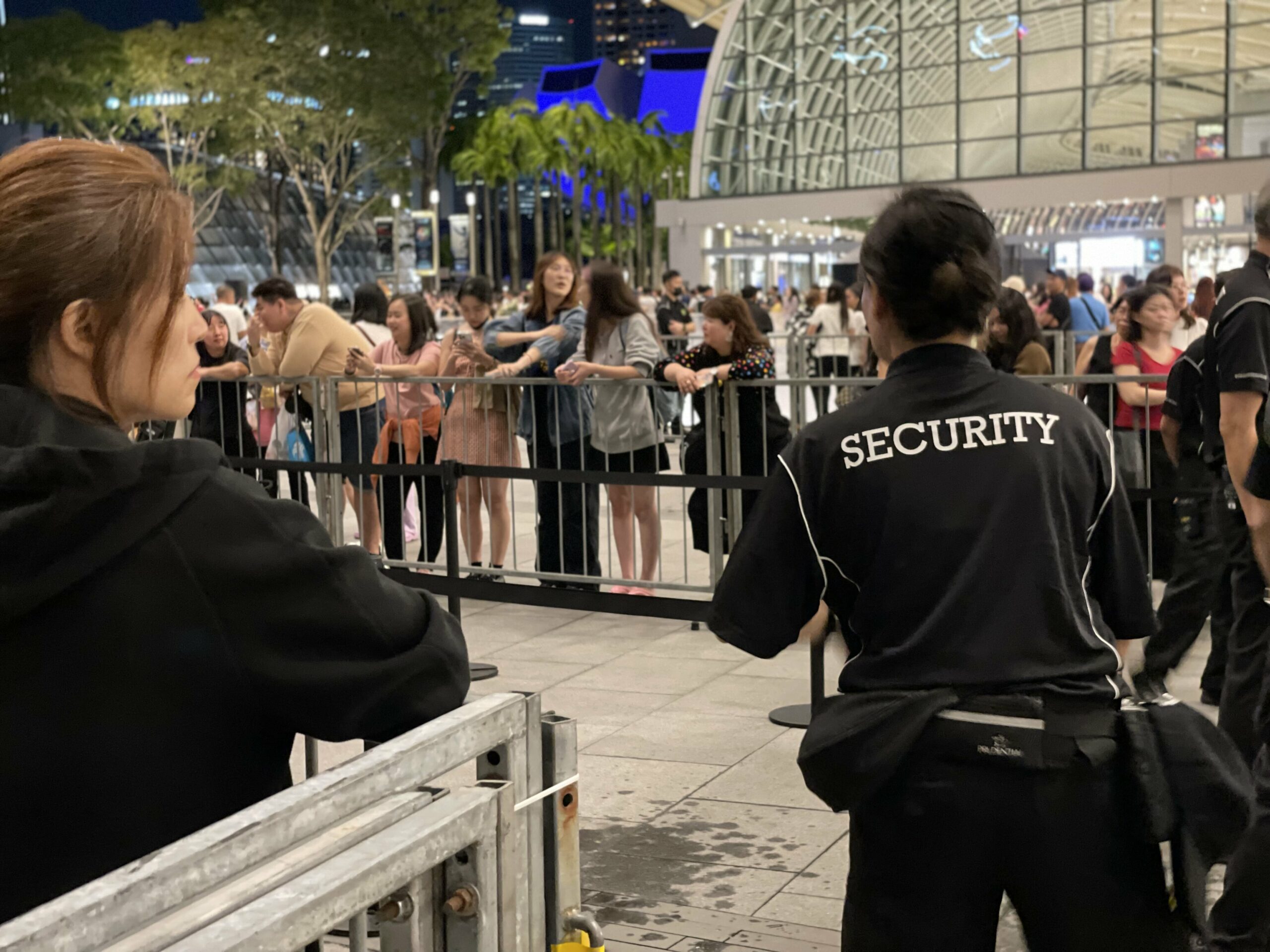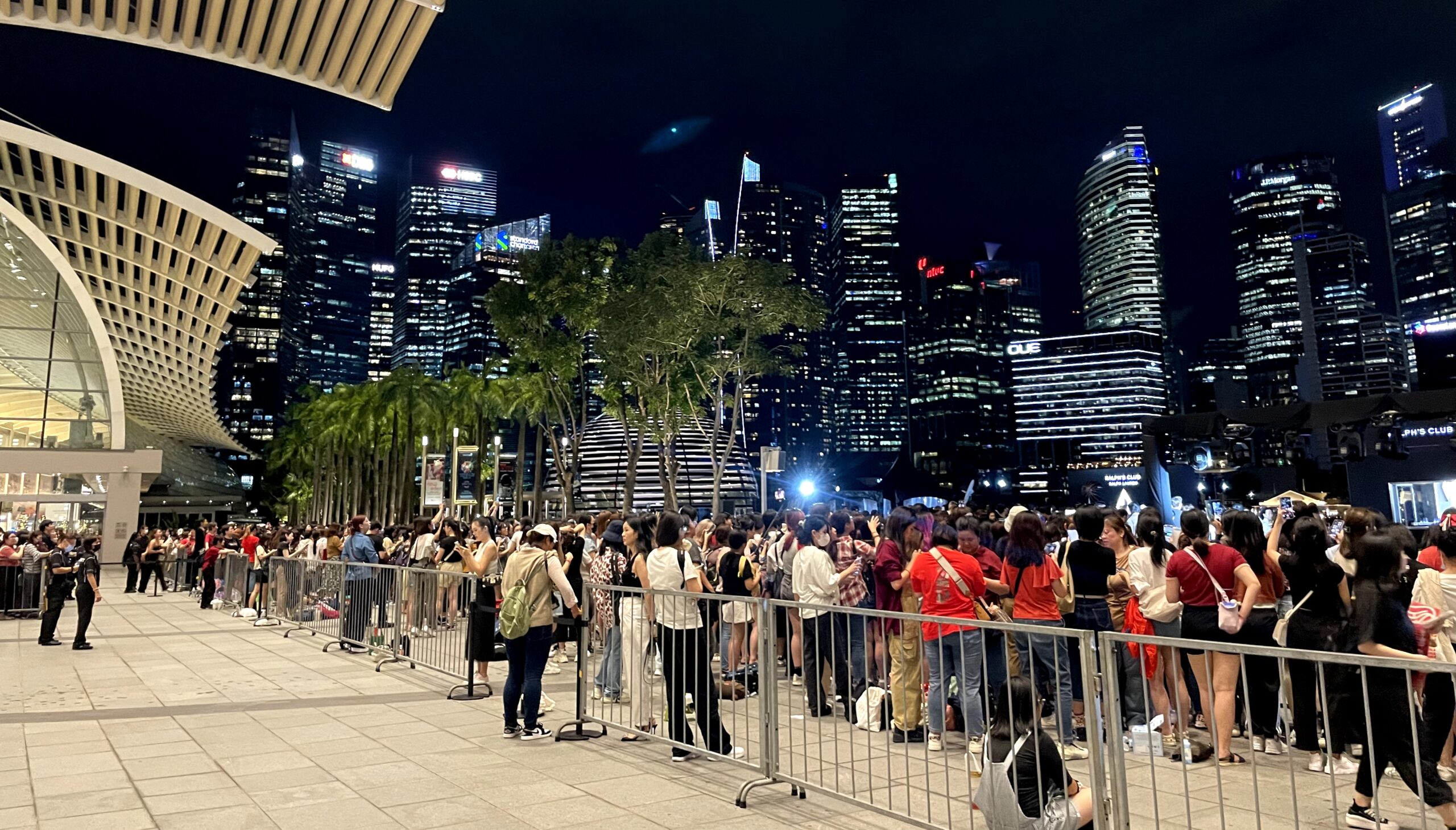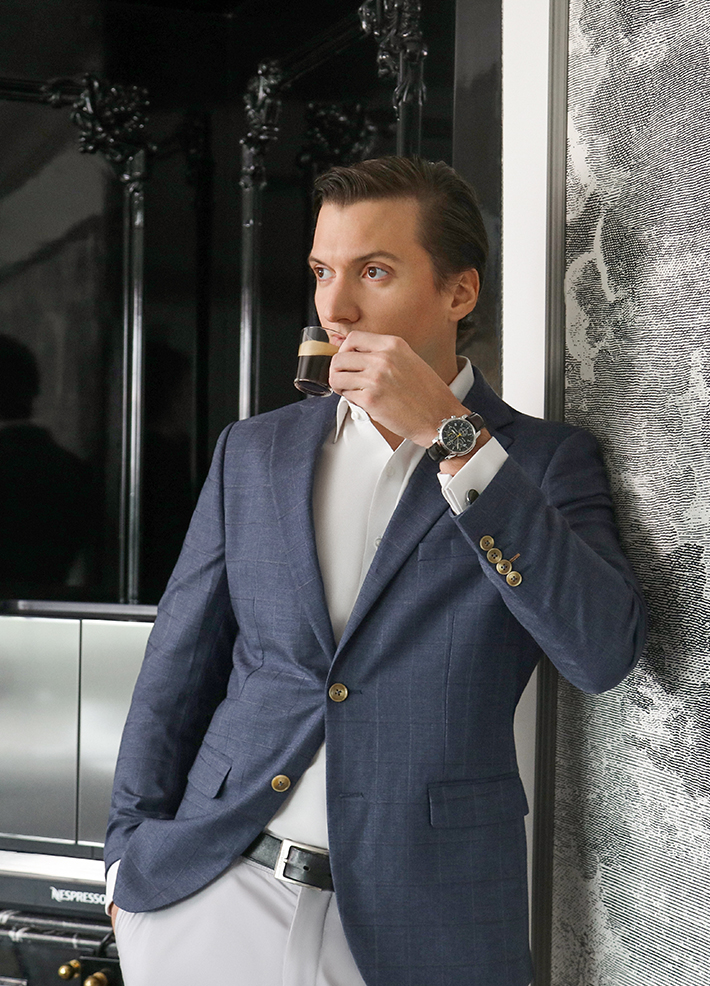The art of queueing: How Grace Ong turned it into a profitable business
- 04.12.2023
- By Anna Ivanova
Five minutes with a professional queuer
BURO Singapore continues our series The Unconventional Career Coach – where we spend five minutes chatting to a multitude of interesting, diverse and unique people in the jobs market, all working in industries or roles you just don’t get to hear or read about on the average day. Each month, our amazing candidates will offer insights on who they are, what they do and how they got there.
Today we speak to a Professional Queuer.
The London queue to say Goodbye to Elizabeth II when she died in September, 2022 could be the longest ever. “As much as the British enjoy a queue, I don’t think we’ve ever seen the likes of this on our shores before,” said Craig Glenday, Editor-in-Chief at Guinness World Records. British authorities had consulted queueing experts to design a gigantic queueing structure. As BBC reported, at its longest, the wait time was more than 24 hours.
It might be a record-breaking event for the UK, but not for Singapore. Grace Ong, 26, had spent more time queueing for a K-pop concert ticket (meanwhile, some of Taylor Swift’s fans started queuing at SingPost outlets 48 hours before the tickets even went on sale). In fact, Grace has turned queueing into business and has been making money out of it for the last 8 years.

Want the latest and rarest? Whether its Starbucks X Blackpink limited edition cup or Taylor Swift concert VIP ticket, Grace can get you anything what is in demand right now. She juggled part-time work with study since 18, making it work around her career as an interior designer at the moment.
How did you step into this business (if we can call it so)? How did you make your first money queuing for something, and what was it?
It all started when I was a student. I was 18, dying to catch a JJ Lin show in Singapore. I realized I had friends who would like to go too, so I offered to queue for their tickets. My first clients were my friends, and the idea was to earn money for my own ticket. At that time, queues were physical, so I had to stay overnight waiting for the office to open at 10 a.m. It took me 15 hours to get the tickets.
It should be exhausting! Do you have any tips on how to survive so long hours waiting in line?
I always recommend not to play solo queueing, better if there is a group or at least two of you. If someone needs to use the toilet, others can hold the spot. Have a schedule of shifts (first 12 hours you are in the line, then you change). Take water and some snacks. Preferably, stay awake. I would say queuing is a competitive experience, so I don’t normally make any friends with other people in the queue, killing time watching Netflix or some videos on YouTube. Though, we don’t do overnight queuing anymore, it’s all online.
When you say “we”, do you mean you have a team?
Yes, I have a team of 6-7 people. They are all my friends or family members. Some are students. At some point, I started getting more offers than I could handle, so I decided to start delegating. I’ve taught them all my tricks, and I’m happy that I give them the opportunity to earn some extra money.

What is the business model and how does it work?
We advertise our services on Carousell. If it’s a concert ticket, we usually require a deposit of $100 which is quite low (less than 30% of the standard ticket price), but that’s my strategy to attract clients. I know people might not feel comfortable transferring large amount of money to a stranger, and that’s where my experience and clients’ reviews help. For Taylor Swift VIP tickets, we required a 50% deposit (the full price was $1300). We managed to buy around 50 tickets for our clients in total.
If it’s a cheaper item, like some merchandise (Starbucks limited edition tumbler, K-pop t-shirt or light stick), we apply a fixed service charge of $40-50. We try to keep the commission low, so it makes sense only if we have enough amount of clients.
Also, there is an ethical moment in our business: I never buy to resale, which helps to keep the prices reasonable. I’m delighted when clients are truly happy, bringing them joy makes me fulfilled even more than money.

What would you say to those who think it’s a very easy job?
I would agree with them. It is easy, except that it requires knowing some techniques. Though, after few sales you get to know them. E.g. I’ve spent only 10-15 minutes to get the tickets for the Taylor Swift concert. Also, you have to keep updated about the latest hype.
How much money is it possible to make working as a professional queuer?
I don’t think you can consider it as a full-time job since in Singapore we are limited by the number of concerts and big events. We usually have one deal per week, and as a team, we make about $5000 monthly. Half of it goes to my pocket as I do most of the work, the rest is shared.
 Who are your clients?
Who are your clients?
A few years ago most of our clients were working people who didn’t have time (or just did’t want to) queue for hours. Now, we have a lot of young people, teenagers (13-18 y.o.) who might even have time to queue, but they don’t have a credit card to purchase anything online, and their parents are not very familiar with the online ticketing systems or don’t will to spend hours in the virtual queue in front of the computer. Being in business for 8 years (including the pause that COVID caused), I’ve gained reputation and loyal clients.
Singaporeans are known for their obsession with queueing for almost anything. Some even joke, it’s their second nature and part of DNA. How can you explain this phenomenon?
I know! People can wait for three hours just to try donuts. When the famous Japanese doughnut chain Mister Donut landed in Singapore a few months ago, queues stretched over two floors. On the opening day of Cedric Grolet’s debut store queues started at 6 am. I think a lot of people have quite boring, ordinary life, and they might even take a day off to queue for something special (and waiting for it makes you feel it is special). Queuing is an extraordinary experience itself.
ADVERTISEMENT. CONTINUE READING BELOW



